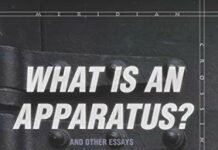
Ebook Info
- Published: 2020
- Number of pages: 102 pages
- Format: PDF
- File Size: 8.49 MB
- Authors: Giorgio Agamben
Description
The Italian philosopher Giorgio Agamben has always been an original reader of texts, understanding their many rich and multiple historical, aesthetic, and political meanings and effects. In Profanations, Agamben has assembled for the first time some of his most pivotal essays on photography, the novel, and film. A meditation on memory and oblivion, on what is lost and what remains, Profanations proves yet again that Agamben is one of the most provocative writers of our times.In ten essays, Agamben rethinks approaches to a series of literary and philosophical problems: the relation between genius, ego, and theories of subjectivity; the problem of messianic time as explicated in both images and lived experience; parody as a literary paradigm; the potential of magic to provide an ethical canon.The range of topics and themes addressed here attest to the very creativity of Agamben’s singular mode of thought and his persistent pursuit to grasp the act of witnessing, sometimes futile, sometimes earth-shattering — the talking cricket in Pinocchio; “helpers” in Kafka’s novels; pictorial representations of the Last Judgment, of anonymous female faces, and of Orson Wells’s infamous object of obsession Rosebud. “In Praise of Profanity,” the central essay of this small but dense book, confronts the question of profanity as the crucial political task of the moment.An act of resistance to every form of separation, the concept of profanation — as both the “return to common usage” and “sacrifice” — reorients perceptions of how power, consumption, and use interweave to produce an urgent political modality and desire: to profane the unprofanable. In short, Agamben provides not only a new and potent theoretical model but also a writerly style that itself forges inescapable links between literature, politics, and philosophy.
User’s Reviews
Reviews from Amazon users which were colected at the time this book was published on the website:
⭐Agamben’s central concern in Profanations is happiness; and the problems lying in wait for the future political task of securing it. In that sense, it can be read as a sequel to _The Coming Community_ for the proximity of topics and manner of constellating them.The question of ‘Happiness as THE highest political objective’ — as the raison d’etre of politics – remains not only unanswered, but even more problematic today. Heraclitus’ enigmatic “Ethos anthropos daimon” is usually translated as “Character is fate.” And thus we tend to miss the significance of DAIMON in the Greek conception of happiness: eudaimonia — literally, “good daimon”. Agamben addresses this question by meditating on the identity of ‘Genius’ as understood by the ancient Italians.For Agamben, ethics is the ethics of human potentiality, the proper end of which is a life sufficient unto itself (eudaimonia). The idea of potentiality as Agamben uses it, is essentially Aristotle’s idea as revised by medieval philosophers. Applied to God, potentia becomes omnipotentia; and thus potentiality in its plenum must also by necessity contain its own impotence: the ability to undo its own power, to do nothing, to get nothing done. This intolerable contradiction shows up in medieval theology as a God having the power to create a boulder so heavy even He cannot lift it. And it is here, in this aporia, in this possibility of impotentiality (as opposed to impotence) that Agamben finds a path to happiness, a path that will lead us to true happiness, which according to Agamben, is always a happiness we could never dream of deserving. Agamben sees in impotentiality the non-doing power that can open a space in which life, as such, has a chance of freeing itself from the iron reticule of sovereign decision, and the traditions, ideologies, identities, and communities that have conspired to weave it. Going off-grid, so to speak. Impotentiality, according to Agamben, is that part of potentiality that orients a life “toward the idea of happiness, and cohesive with a form-of-life” because impotentiality – and here is taking his inspiration from Heidegger – understood as “poverty,” as the essential formlessness of being-human, is the factical form of Dasein that coincides with the “inseparable unity of Being and ways of being, subject and qualities, life and world… in which it is never possible to isolate something like bare life.”To be sure, happiness, as Agamben conceives it, is to be found beyond the state `apparatus’ (dispositif) of “capture and neutralization.” Therefore, the quest for happiness is the nub of the ethics that would valorize the bios politikos as a means toward achieving a good life. So the question is: what kind of political life is still possible when (or if) the nomos of the modern political paradigm is no longer the polis but the camp? And, what kind of ethics? Agamben proposes this: a politics that is purely profane; a politics freed from all secularized theological concepts (pace Schmitt); a politics constructed only on the idea of happiness, of a life well-lived. In short, a `sufficient’ life; a life that is in accordance with what he calls the “infinite omnivalence of whatever being” of being human; a life in which ethics is not a matter of subjective decision but a matter of experience – “the experience of being (one’s own potentiality), of being (one’s own) possibility; of exposing in every form one’s own amorphousness and in every act one’s own inactuality.”Profanation of the sacred is the passage away from a religio that is now felt to be false or oppressive. And this passage is the passage of special negligence – not the negative kind but the innocent kind by which children passionately at play neglect their mothers’ call. Indeed, Agamben defines play (ludus) as an entirely inappropriate (re)use of the sacred, and one of the means of opening the passage from the sacred to the profane. “Play frees and distracts humanity from the sphere of the sacred, without simply abolishing it.””To profane means not simply to abolish and erase separations but to learn to put them to new use, to play with them. The classless society is not a society that has abolished and lost all memory of class differences but a society that has learned to deactivate the apparatuses of those differences in order to make a new use possible, in order to transform them into pure means.”Agamben sidesteps the broad question of how all this might get done by proclaiming that “the profanation of the unprofanable is the political task of the future generation.” Well, that sounds nice and all, but the problem is, the future lasts forever. It is a copout to defer to the future to take up what has no chance of seeing the light of day in real time. What, after all, is exempt from the bottomless maw that is the `political task of the future’? Surely, securing a perpetually renewable energy platform; figuring out ways to equitably distribute and implement that technology so as to minimize unnecessary imbalance of wealth; and revitalizing the planet’s ecology are all a little further up on the To-do list, just ahead of joining the United Galactic Federation. 😀
⭐accuracy & price, well done!
⭐
Keywords
Free Download Profanations (Zone Books) in PDF format
Profanations (Zone Books) PDF Free Download
Download Profanations (Zone Books) 2020 PDF Free
Profanations (Zone Books) 2020 PDF Free Download
Download Profanations (Zone Books) PDF
Free Download Ebook Profanations (Zone Books)




